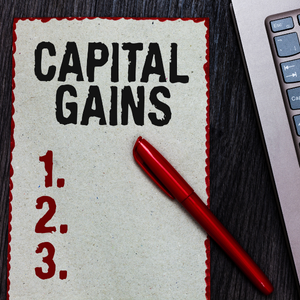
When it comes to capital gains taxes, it can be complicated, whether it is short-term or long-term investments. This is why we have created this guide. With tools like our capital gains tax calculator, specifically designed for Charlotte residents, we can help you determine your tax obligations. This will help you gain a clearer financial picture, maximize your ROI, and help you stay within tax law for the state and the country. We provide expert knowledge that connects tax law to your investments, helping you take control of your finances.
Brief Overview
Investors and property owners in Charlotte, NC, especially face challenges with capital gains taxes. Knowing the difference between short-term and long-term capital gains and the rates that apply to each is critical. Long-term capital gains provide lower rates and are much more strategically advantageous. You have to plan for both state and federal taxes. A reasonably intuitive capital gains tax calculator can help, and considering the year and tax-loss harvesting, will avoid surprises, provide better tax management, and ultimately lead to effective wealth management.
Key Highlights
- Understanding capital gains tax is essential for anyone trading investments and real estate in Charlotte, NC, as part of a comprehensive financial plan.
- Short-term gains are taxed at ordinary rates, which is very different from long-term gains, which are taxed at a lower rate.
- Looking at the state and federal capital gain tax rules helps to plan for the best possible investments for the amount of tax expected to be paid.
- Selling assets at the right time, tax-loss harvesting, and gain calculators are powerful ways to minimize the amount of tax you will pay.
- Managing capital gains tax depends on the timing of the tax year and gives you the best possible return on your investments and financial plan.
Understanding Capital Gains Tax in Charlotte, NC
Anyone who invests or owns property in Charlotte, NC, should be familiar with the basics of capital gains tax. Understanding capital gains tax fundamentals can provide the information needed for a strategic financial organization. This portion clarifies capital gains, specifically the difference between short-term and long-term capital gains. This will help taxpayers understand the tax impact of their choices and potentially their understanding of capital gains tax in Charlotte.
What Are Capital Gains?
Whenever you sell an asset like stocks, bonds, or real estate for more than you paid for it, you earn capital gains. Charlotte, NC, considers these gains for determining how much you owe in taxes. Taxes are based only on profits made, calculated by taking the basis or purchase price from the sale price. Investors and owners of real estate must understand how basis and sale price impact their finances.
In Charlotte, NC, capital gains taxes are classified based on how long the asset is held. Assets held for less than one year are taxed at the ordinary tax rate for income, while items held for over a year are taxed at a lower rate, thus making them more desirable. Charlotte investors have additional considerations that affect their tax obligations, such as the timing of stock sales and the real estate mortgage interest deduction. Investing capital tax gain calculators offer the ability to project capital gains and make decisions that will improve net gains by preventing taxes that exceed expectations.
To better manage your capital gains taxes and improve your financial planning, consider these tips:
- Track your holding periods and learn how to tell short- and long-term gains apart.
- Take advantage of tax-advantaged accounts and tax-efficient accounts to minimize and delay capital gains taxes.
- See if tax-loss harvesting is an option to help offset gains.
- Consider an asset location strategy to better manage the taxes of your various investments.
- Tax strategy dividends and reinvest them when needed.
- Track and keep copies of all your transactions for when taxes are due.
- Get help from tax professionals when the tax code becomes too complicated.
- Know your tax bracket and how it sets the capital gains taxes for you.
- Use your tax-advantaged capital gains for the given financial year.
- Time your investments so you can offset taxes on gains and losses in different financial years.
- Gifting appreciated assets to lower family members may reduce the asset tax.
- Taxes may vary by state, so consider the tax consequences in your area.
- Keep track of tax legislation on capital gains.
Adopting these strategies may help your investments be less impacted by taxes and offset the tax cost on your investments in Charlotte.
Short-Term vs. Long-Term Capital Gains
When planning your investment strategy in Charlotte, NC, understanding the differences between short-term and long-term capital gains is essential for optimizing taxes and maximizing returns.
| Feature | Short-Term Capital Gains | Long-Term Capital Gains |
|---|---|---|
| Holding Period | Less than 1 year | More than 1 year |
| Tax Rate | Taxed at ordinary income rates (up to 37%) | Preferential rates from 0% to 20% depending on income |
| Impact on Tax Bill | Higher tax burden due to ordinary income rates | Lower tax burden, strategic for long-term growth |
| Investment Strategy | Suited for immediate gains from market fluctuations | Beneficial for patient investors, compounding wealth over time |
| Use of Basis | Determines net revenue, critical for tax calculation | Same, but more advantageous due to reduced rates |
| Tax Optimization Methods | Limited; timing is key | Tax-loss harvesting, strategic asset sales, and calculators can optimize taxes |
| Applicability in Charlotte | Short-term property flips or equity trades | Long-term property investments and stocks benefiting from appreciation |
| Considerations | Higher taxes may reduce net profit, which is good for short-term opportunities | Aligns with lower-taxed income, financial planning, and long-term goals |
| Professional Guidance | Advisable for complex trades | Strongly recommended for maximizing tax efficiency and compliance |
By understanding these differences, Charlotte investors can make decisions that meet their financial goals, minimize taxes, and capitalize on local market opportunities.
Calculating Capital Gains

For the investors living in Charlotte, NC, knowing how to calculate capital gains is essential for smart financial planning. Knowing how to perform these calculations is necessary to assess possible tax liabilities when it comes to real estate, stocks, and any other investments. This chapter offers the most comprehensive approach to capital gains calculations, focusing on net and other complicated insights on assets to simplify and enhance the investor’s financial planning.
Step-by-Step Guide to Calculate Capital Gains
Calculating capital gains is essential for understanding how to manage your investments and fulfill your tax obligations. Here are five steps to learn how to calculate your capital gains.
Step 1: Determine the Asset’s Basis
For calculating your capital gain, you will need to know what the purchase price of the asset was and what expenses you paid that were related to it, like fees, commissions, or improvements to the property.
Step 2: Identify the Gross Selling Price
Identify the price you sold the asset for. This is your selling price and what you earned from the asset.
Step 3: Calculate the Net Gain
To find the net gain, gross selling price – asset basis will give you that figure. This is the capital gain amount that you will need to pay tax on.
Step 4: Classify Gains and Apply Tax Rates
You will need to determine whether the gain is short-term or long-term. Short-term gains are for assets that you held for less than one year, and long-term gains are for assets that you held for more than one year. Apply the respective tax rate for your category.
Step 5: Use Available Methods
Calculating capital gains taxes using tax calculators will help you manage the remaining tax liability. Other methods, like tax-loss harvesting or tax deferral, will help manage tax liability. For complicated calculations, you can hire a tax professional.
Investors in Charlotte, NC, can calculate their capital gains accurately and optimize their finances while remaining compliant with tax regulations by using the steps here.
Impact of Long-Term Capital on Your Taxes
For investors living in Charlotte, NC, long-term capital gains will continue impacting tax liabilities on long-term capital gains and tax liabilities until the gains are realized. The longer investments are held, the more tax benefits can be accrued. These gains are taxed at far lower rates than their short-term counterparts and are highly beneficial to those prioritizing the maximization of their net income. Any savvy investor will understand the need to look at long-term capital gains from a tax, strategic, and potential savings perspective, as well as the differences between them and short-term capital gains.
Advantages of Long-Term Capital Gains
When assets are held for over a year, long-term capital gains become very beneficial for an investor’s taxes because these assets are also subject to very low tax rates, between 0% and 20%. These tax rates are much lower than those of regular income, thus allowing investors to keep more of their income for other investing purposes. This is very valuable in Charlotte, NC, since there are high property values and many investment opportunities. Long-term investors can become very stable and have their wealth accumulate in a more consistent fashion because they are able to decrease their tax liabilities through long-term investing.
Determining an asset’s adjusted basis is crucial, particularly for calculating net gains. This includes the purchase price and any improvements made to the asset. Understanding this is important for complying with Charlotte’s capital gains tax. Investors are able to optimize their strategy by using capital gains tax calculators and other methods to ‘harvest’ losses to offset gains. Long-term investments are beneficial for the balance of an investor’s tax and also for the tax minimization purpose, in addition to supporting compounding growth, which increases their long-term financial security.
Capital Tax Implications in Charlotte

Capital tax implications in Charlotte affect the return from property and investments. These implications directly affect an individual’s financial screening. These implications involve the capital gains tax liabilities from the sale of properties and assets. Planning for the impacts of state-level capital tax and the mitigation of liabilities is an essential aspect for Charlotte residents. This aids Bub in tax-efficient investments. This helps residents reduce the surprise financial stress of operating in the ever-changing Charlotte market.
Overview of State Capital Impact on Taxes
For optimizing returns on investments, understanding the North Carolina state capital gains tax law and the federal capital gains tax regulations is critical. North Carolina state capital gains and profits from the sale of stocks and properties are taxed as regular income, which can considerably influence the profit from the sale of properties and stocks. Investors have tax liabilities and tax periods on which properties can have tax gains and losses. Investors need to file a capital gain tax return on the sale of properties. The capital gain tax calculators can estimate the state and federal tax liabilities, which leads to more accurate structured investments.
Tax planning can help reduce the amount of tax to be paid. For example, adjusting the tax basis of the property by including the cost of improvements, considering the cost of capital improvements, and using tax mortgage deduction strategies can help. Due to the proportional equity ownership in real estate and the market’s appreciation, investment properties in Charlotte continue to increase in value. North Carolina property tax law defers gains, and real estate investors increase profits by investing in long-term properties. By understanding the federal and state tax laws, investors can increase their net returns and investments.
Strategies for Lowering Your Tax Bill
If you are investing in real estate or investing in general, tax burden management is essential, especially in Charlotte, NC. Knowing and implementing tactical tax strategies can be a game-changer in your overall financial well-being. Here is a look at tax reduction strategies that include the timing of asset sales, the use of gains tax calculators, and the tax-wise use of investments. These strategies focus on the complex capital gains tax and how to maximize the advantages of the investments while lowering the chances of being taxed at the higher limit.
Effective Methods to Reduce Tax Payments
To pay lower taxes, you must learn the best ways to achieve it, partly by understanding how timing influences the financial result. For instance, you pay lower taxes on capital gains for long-term holdings if you sell assets in a year when your income is lower. A capital gains tax calculator can help you estimate your potential liabilities, along with various selling options, and plan better. For investors in favorable tax environments like Charlotte, NC, your analysis is critical for both state and federal tax environments.
Tax-loss harvesting, or offsetting gains with losses, is another effective strategy. Additionally, investing through tax-deferred options, such as 401(k)s, IRAs, and real estate 1031 exchanges, can be beneficial. These options lower taxes due now while increasing a tax’s potential future value and will help you achieve your goal of deferred high future tax value. For best results, the guidance of a tax professional will help achieve your goal of having the lowest legal tax liabilities while improving your overall net return.
| Strategy | Description | Benefits | Considerations |
|---|---|---|---|
| Tax-Deferred Retirement Accounts | Contribute to a 401(k) or a Traditional IRA to defer taxes until withdrawal | Withdrawal taxes apply, and there are potential penalties for early withdrawal | Contribute to 401(k) or a Traditional IRA to defer taxes until withdrawal |
| Roth IRA Contributions | Invest with after-tax income for tax-free growth and withdrawals | No taxes on qualified withdrawals, tax-free growth | Income limits apply; no immediate tax benefit |
| Itemize Deductions | Deduct specific expenses like mortgage interest or charitable donations | Can significantly lower taxable income if deductions exceed the standard amount | Needs detailed record-keeping, time-consuming |
| Health Savings Account (HSA) | Contribute pre-tax funds for medical expenses | Triple tax advantage: tax-deductible contributions, tax-free growth, tax-free withdrawals for medical expenses | Account requires a high-deductible health plan, contribution limits |
This table summarizes tax-reduction strategies and shows how well they adapt to federal and state tax landscapes.
Understanding the Tax Year for Capital Gains

In Charlotte, NC, understanding the tax year remains one of the most important aspects of capital gains taxation and tax liability. Understanding the intricacies of the tax year enables one to devise strategies to minimize tax liability, whether through net gains or by determining the order in which investments will be sold. Here, we will discuss how the tax year influences the capital gains tax in Charlotte, NC. Specifically, the planning calendar from the perspective of tax years and capital gains. Most importantly, tax year knowledge leads to informed real estate and equity investments.
How the Tax Year Affects Your Capital Gains
Each tax year has its own implications for capital gains, which have a direct impact on your investing strategy. Understanding the implications of realizing gains or losses allows for the optimization of capital gains. Taxes on both types of capital gains and gains realized from the sale of an appreciating investment can be affected by the timing of the sale. For example, if you sell an asset on December 31 instead of January 1, you attribute the gain to a different tax year. This can substantially influence your tax owed.
Considering the timing of realizing capital gains or losses from the sale of an appreciating investment allows for extensive planning and has implications for the investor. Investors in the Charlotte, NC area and in similar tax jurisdictions can use a capital gains tax calculator to plan and evaluate different scenarios to minimize capital gains tax on appreciating investments and minimize tax exposure. Investors can also realize tax losses in years with lower income or in conjunction with other tax-deductible losses. Coordinating the timing of sales and the realization of gains or tax losses during the tax year can increase efficiency and reduce tax exposure on your investments.
Whether you’re trying to understand long-term or short-term capital gains tax in Charlotte, NC, a good calculator helps you plan your finances better. It enables you to calculate with new rates, exemptions, and local policies so you can be informed. Some gains can be saved or appropriately invested if you understand some tax optimizations. You can lose or gain financially when the tax system changes, so correctly predicting changes helps to keep your finances in shape. Use this calculator to check and balance your finances to make the most of the opportunities available in Charlotte. Bold Steps or Tone Principles.
Are you considering selling your property after calculating your potential capital gains tax in Charlotte, NC? Whether you need to sell quickly, avoid expensive repairs, or prefer a hassle-free process, Cardinal Home Buyers can help. As trusted cash home buyers in Charlotte, we offer fair cash offers, handle all the paperwork, and close on your schedule. Work with a reliable company that buys homes in North Carolina and experience a smooth, straightforward sale. Ready to sell or have questions? Contact us at (919) 609-5173 for a no-obligation cash offer and take the next step toward financial peace of mind today!
FAQs
How does Charlotte, NC, tax capital gains?
Capital gains are the profits from selling stocks, bonds, or property. Gains are crucial to tax liability in Charlotte, NC, as elsewhere in the U.S. Short-term capital gains are taxed at ordinary income rates, and long-term gains at reduced rates.
How does a capital gains tax calculator help Charlotte residents?
A capital gains tax calculator helps residents estimate taxes. It allows investors to evaluate financial scenarios based on expected sale prices, asset types, and holding durations.
What strategies can minimize capital gains taxes in Charlotte, NC ?
Tax-loss harvesting, timing asset sales during favorable tax years, and using low-tax investment accounts like IRAs can reduce capital gains taxes. A capital gains tax calculator can also help reduce taxes.
What is the difference between short-term and long-term capital gains?
Short-term capital gains are taxed at ordinary income rates on assets held less than a year. Long-term capital gains require assets held for more than a year and are taxed at 0% to 20%, depending on income.
How does understanding the tax year affect capital gains management?
Understanding the tax year is important for capital gains management because it affects tax rates. Knowing when to realize gains or losses during a tax year optimizes tax positions and aligns investment sales with favorable tax conditions.
Helpful Charlotte Blog Articles
- Charlotte, NC, Home Closing Costs Calculator
- Charlotte, NC, Property Tax Rate
- Charlotte, NC, Capital Gains Tax Calculator
- Is Charlotte, NC, Safe
- Charlotte, NC, Neighborhood Map
- Fun Facts About Charlotte, NC
- Free Things to Do in Charlotte, NC
- Charlotte, NC, Cost of Living
- The Best and Worst Neighborhoods in Charlotte, NC
- Do All Heirs Have to Agree to Sell Inherited Property in Charlotte, NC?
- How Do I Short Sell My House in Charlotte, NC

